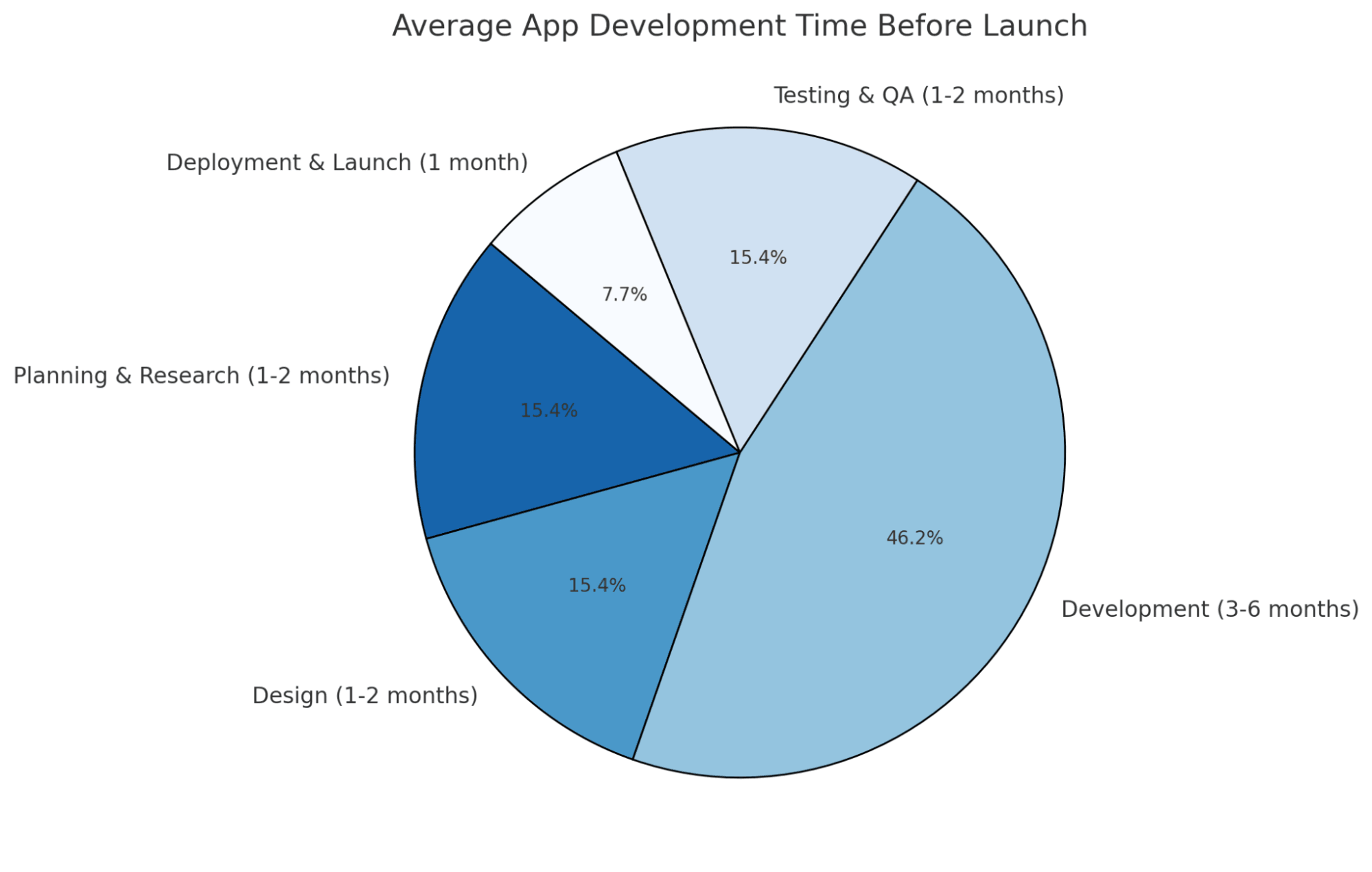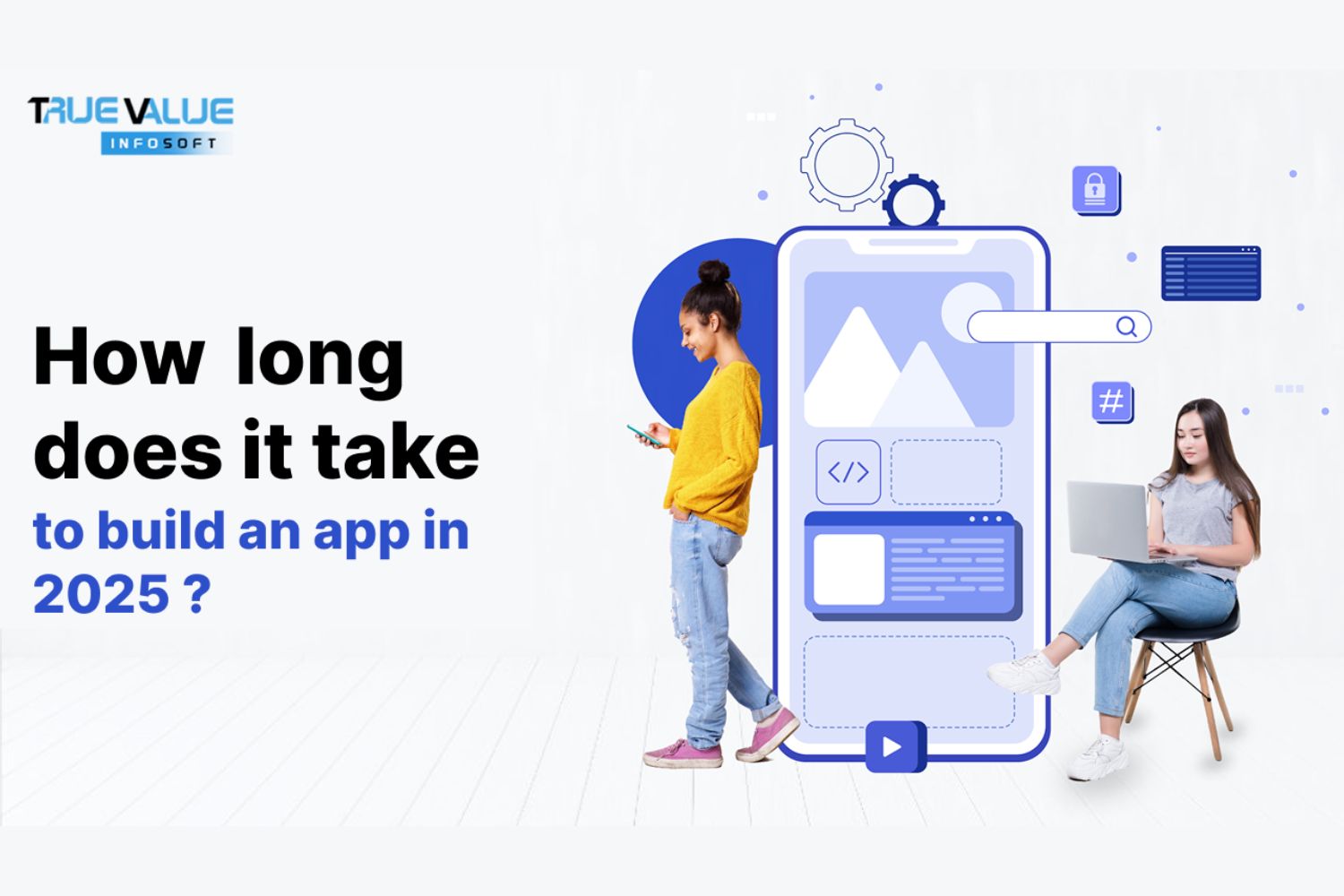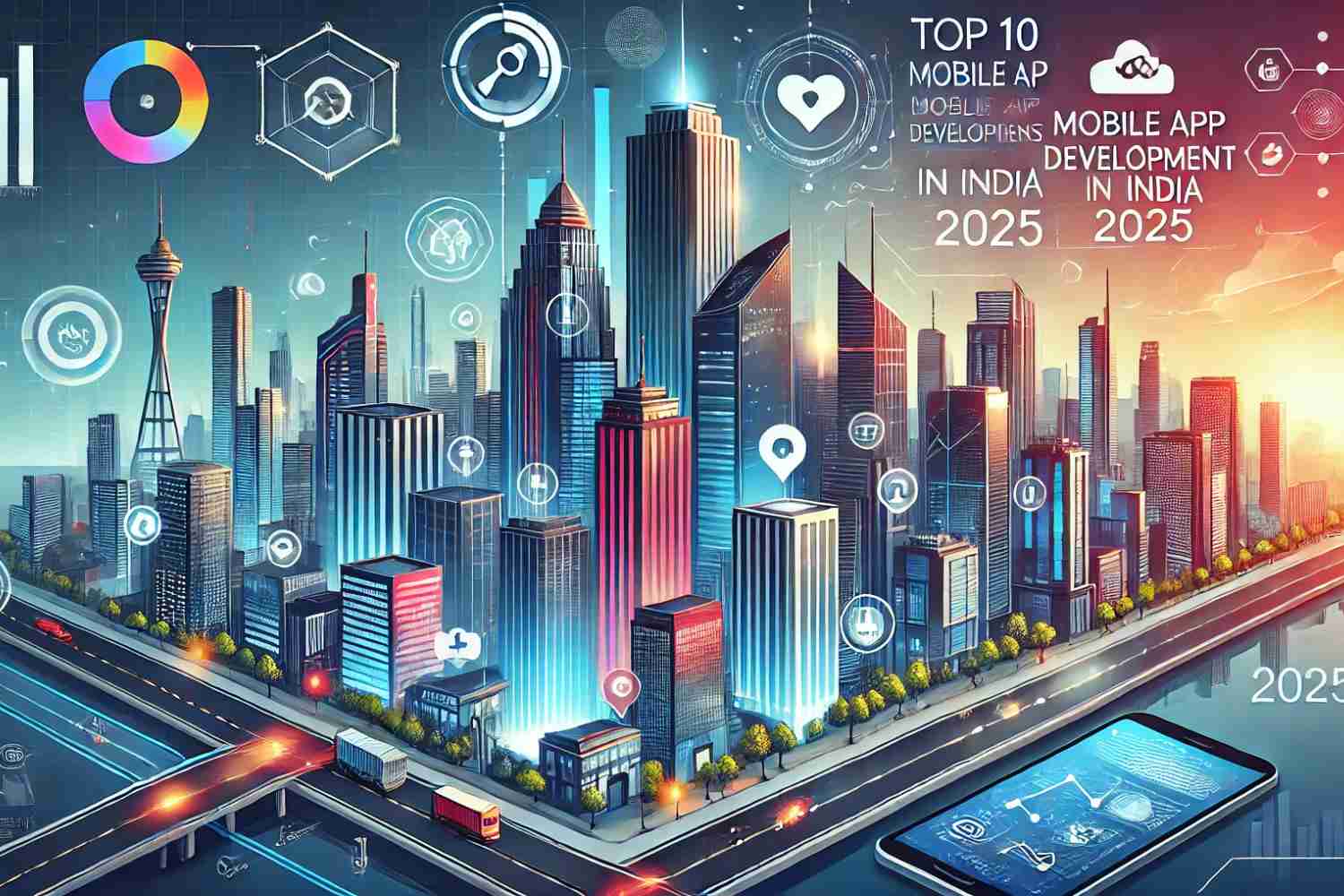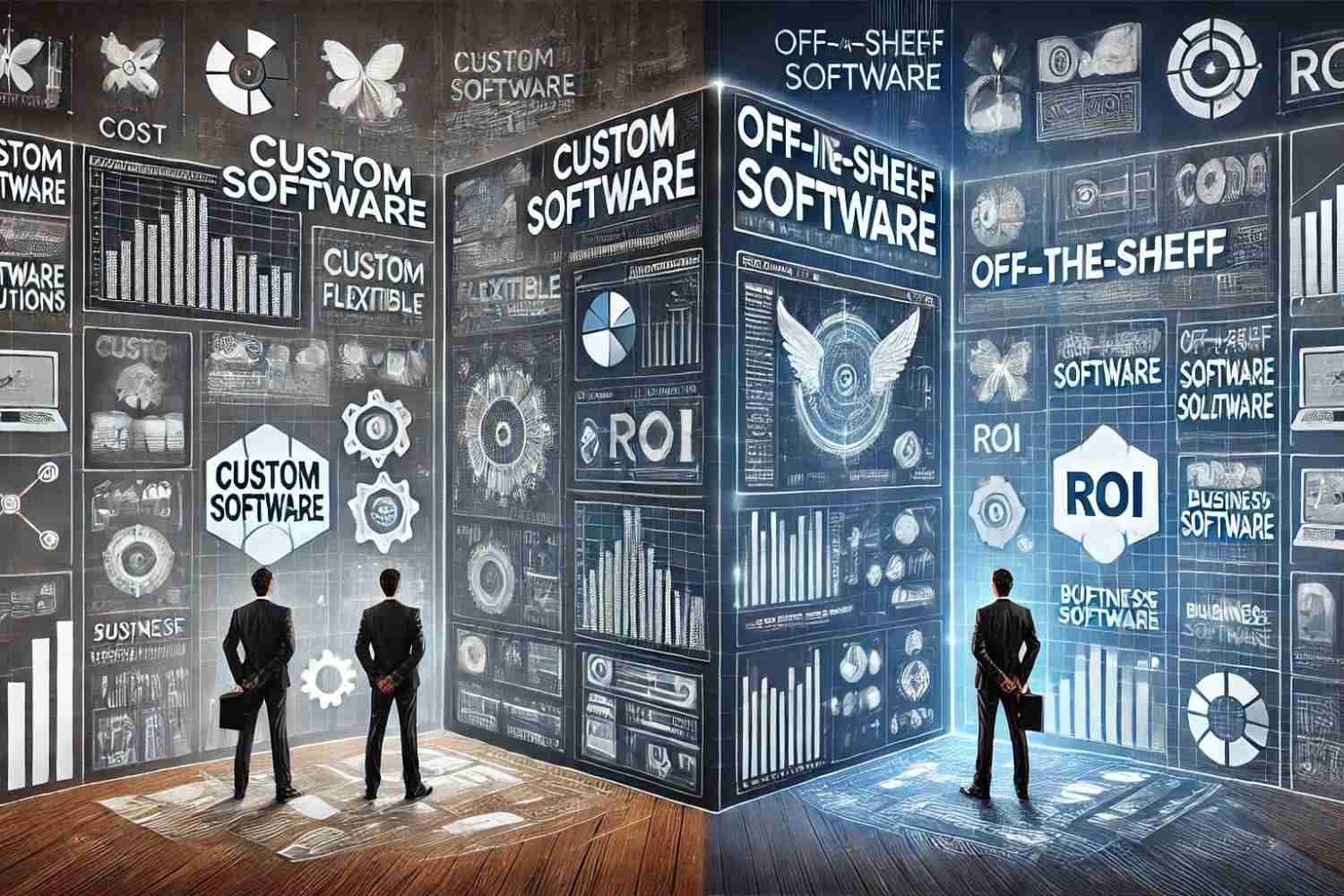Have you ever wondered how long it takes to build an app? The answer depends on various factors, including complexity, features, design, and development process. Custom features, integrations, and platform compatibility can extend the timeline further. While rapid development is possible, quality apps require careful execution to ensure a seamless user experience, security, and performance. Patience and planning are key to success.
A top IT company like True Value Infosoft specializes in delivering high-quality apps efficiently, streamlining the process with expert developers and advanced technologies. Whether it’s a simple app or a complex enterprise solution, the timeline varies, but with the right team, businesses can achieve a smooth and timely launch.
Many companies offer custom mobile app development, but creating a fully functional app requires careful consideration of several factors that impact the overall development timeline. From design and features to platform compatibility and testing, each stage plays a crucial role in determining the final product’s success. The global mobile app development market, valued at $197.2 billion in 2021, is expected to grow significantly, reaching $583.03 billion by 2030, with a CAGR of 12.8%. This rapid growth highlights the increasing demand for high-quality apps, making it essential for businesses to invest in efficient development strategies for a competitive edge.

How Long Does It Take to Develop an App? (By Complexity)
The time required to develop an app largely depends on its complexity. App development can be categorized into simple, moderate, and complex apps, each with distinct timelines and challenges. Let’s explore the estimated development time for each type along with key considerations.
1. Simple Apps (3-6 Months)
These apps are basic, with limited features and minimal functionality. They often include a simple user interface, essential navigation, and core functionalities like login, content display, and contact forms.
Key Factors:
- Typically involve 1-2 developers
- Require minimal backend integration
- No real-time features or third-party API dependencies
- Examples: Calculator apps, To-Do lists, Basic fitness tracking apps
📌 Estimated Development Time: 3 to 6 months
2. Moderately Complex Apps (6-9 Months)
These apps have more advanced features, integrations, and custom UI/UX. They may require a structured database, payment gateways, and API integrations.
Key Factors:
- Requires a team of developers, designers, and testers
- Includes backend development, real-time updates, and push notifications
- Needs security implementation and performance optimization
- Examples: E-commerce apps, Social media apps, Booking platforms
📌 Estimated Development Time: 6 to 9 months
3. Complex Apps (9+ Months to Over a Year)
High-end apps involve advanced features, AI, big data processing, and real-time functionalities. They require thorough planning, scalability, and continuous maintenance.
Key Factors:
- Development involves multiple teams, including AI/ML experts and backend specialists
- Requires data security measures, cloud storage, and high-end UI/UX
- Features include live streaming, blockchain integration, or AI-driven personalization
- Examples: Uber-like apps, Banking apps, Streaming platforms (Netflix, Spotify)
📌 Estimated Development Time: 9 months to over a year
Factors That Impact Mobile App Development Timelines
- App Complexity – More features mean a longer timeline.
- Platform Choice – iOS, Android, or cross-platform development.
- Technology Stack – Native (Swift/Kotlin) vs. Hybrid (React Native, Flutter).
- Team Size & Experience – More developers can accelerate development.
- Third-Party Integrations – APIs and cloud-based services take additional time.
- Regulatory Compliance – Apps in healthcare, finance, and security need extra time for compliance testing.
- Iterations & Changes – Frequent changes and feature requests can extend timelines.
Mobile App Development Niches and Their Timelines
Different mobile app niches require varying amounts of time for development, depending on their complexity, required features, and market demands. Below is a breakdown of popular app development niches and their estimated timelines.

📌 Key Features:
- User Registration & Profiles
- Real-time GPS Tracking
- Payment Integration
- Push Notifications
- Ratings & Reviews
- Chat Support
- Admin Panel
⏳ Estimated Development Stages:
| Stage | Duration |
|---|---|
| Planning & Research | 4-6 weeks |
| UI/UX Design | 6-8 weeks |
| Development | 16-24 weeks |
| Testing & Deployment | 8-12 weeks |

📌 Key Features:
- User Profiles & Authentication
- News Feed & Content Sharing
- Live Streaming
- Messaging & Comments
- Video Uploads
- Algorithm-Based Recommendations
⏳ Estimated Development Stages:
| Stage | Duration |
|---|---|
| Planning & Research | 4-6 weeks |
| UI/UX Design | 6-10 weeks |
| Development | 18-26 weeks |
| Testing & Deployment | 10-12 weeks |

📌 Key Features:
- Product Listings & Search
- Payment Gateway Integration
- Shopping Cart & Checkout
- Order Tracking
- Reviews & Ratings
- Admin Dashboard
⏳ Estimated Development Stages:
| Stage | Duration |
|---|---|
| Planning & Research | 4-5 weeks |
| UI/UX Design | 6-8 weeks |
| Development | 16-20 weeks |
| Testing & Deployment | 6-8 weeks |

📌 Key Features:
- Secure User Authentication
- Bank Account Linking
- Payment Processing
- Investment & Trading Features
- Fraud Detection & Security
- Compliance with Regulations
⏳ Estimated Development Stages:
| Stage | Duration |
|---|---|
| Planning & Compliance Research | 6-8 weeks |
| UI/UX Design | 8-10 weeks |
| Development | 20-26 weeks |
| Testing & Deployment | 10-12 weeks |

- Examples: MyFitnessPal, Fitbit, Strava
- Timeline: 6-12 months
📌 Key Features:
- Step Counter & Activity Tracker
- Meal & Diet Plans
- Integration with Wearables
- AI-Based Recommendations
- Workout Tutorials
⏳ Estimated Development Stages:
| Stage | Duration |
|---|---|
| Planning & Research | 3-5 weeks |
| UI/UX Design | 5-7 weeks |
| Development | 14-20 weeks |
| Testing & Deployment | 6-8 weeks |

- Examples: Duolingo, Coursera, Udemy, Khan Academy
- Timeline: 8-14 months
📌 Key Features:
- Video Streaming & Tutorials
- Gamification & Quizzes
- Live Sessions & Chat
- Progress Tracking
⏳ Estimated Development Stages:
| Stage | Duration |
|---|---|
| Planning & Research | 4-6 weeks |
| UI/UX Design | 6-8 weeks |
| Development | 18-22 weeks |
| Testing & Deployment | 8-10 weeks |

📌 Key Features:
- Video/Audio Streaming
- Subscription-Based Content
- Offline Downloads
- AI-Powered Recommendations
⏳ Estimated Development Stages:
| Stage | Duration |
|---|---|
| Planning & Research | 4-6 weeks |
| UI/UX Design | 6-10 weeks |
| Development | 20-26 weeks |
| Testing & Deployment | 10-12 weeks |

- Examples: Airbnb, Expedia, Booking.com
- Timeline: 9-15 months
📌 Key Features:
- Hotel & Flight Booking
- GPS Navigation
- Price Comparison
- Reviews & Ratings
⏳ Estimated Development Stages:
| Stage | Duration |
|---|---|
| Planning & Research | 4-6 weeks |
| UI/UX Design | 6-8 weeks |
| Development | 16-24 weeks |
| Testing & Deployment | 8-12 weeks |

- Examples: PUBG, Candy Crush, Pokémon GO
- Timeline: 12-24 months
📌 Key Features:
- High-Performance Graphics
- Multiplayer Features
- Virtual & Augmented Reality
- In-App Purchases
⏳ Estimated Development Stages:
| Stage | Duration |
|---|---|
| Planning & Research | 6-8 weeks |
| UI/UX Design | 8-10 weeks |
| Development | 20-30 weeks |
| Testing & Deployment | 12-16 weeks |
Let True Value Infosoft Be Your Go-To Partner for Successful Mobile App Development
In today’s fast-paced digital world, having a reliable partner for mobile app development is crucial to achieving success. True Value Infosoft is your trusted technology partner, dedicated to transforming your ideas into high-quality, scalable, and innovative mobile applications.
With expertise across various industries, we specialize in building user-friendly, high-performance, and feature-rich mobile applications for startups, enterprises, and businesses of all sizes. Our team of experienced developers, designers, and strategists ensure seamless development, from initial concept to final deployment. Whether you need an on-demand service app, e-commerce platform, fintech solution, or AI-powered application, we craft solutions tailored to your business goals.
At True Value Infosoft, we follow a structured development approach, emphasizing agile methodology, advanced UI/UX design, and robust security. We integrate the latest technologies, including AI, machine learning, blockchain, and cloud computing, to deliver scalable and future-proof applications.
Our commitment to timely delivery, innovation, and customer satisfaction makes us the ideal partner for your mobile app development needs. Let’s turn your vision into reality and build an app that drives success. Get in touch with True Value Infosoft today and take your business to the next level!
Conclusion
The time required to develop a mobile app depends on several factors, including app complexity, features, platform, technology stack, and team expertise. Simple apps with basic functionality can be developed in 3 to 6 months, while more complex applications, such as on-demand services, social media platforms, or AI-driven apps, may take 9 to 18 months or more. Enterprise-level applications or highly customized solutions can extend beyond 12+ months due to advanced security, compliance, and scalability requirements.
Each stage of development—planning, UI/UX design, development, testing, and deployment—plays a critical role in ensuring a smooth and successful launch. Opting for agile development methodologies, experienced teams, and modern tech stacks can accelerate the process without compromising quality.
While timelines vary, investing time in strategic planning and choosing the right development partner can significantly impact success. Whether you need a simple app or a large-scale digital solution, understanding the expected timelines helps in setting realistic goals, budgets, and launch schedules.
Ultimately, the key to a successful app development journey lies in thorough planning, efficient execution, and continuous improvement.
FAQs
The development time for a mobile app in 2025 varies based on complexity:
- Simple app (basic features, no backend): 2–4 months
- Medium complexity app (API integrations, database, authentication): 4–8 months
- Complex app (AI features, real-time updates, extensive backend): 8–12+ months
Several factors impact development time, including:
- Features & Complexity (e.g., AI, AR/VR, blockchain)
- Design & UI/UX Requirements
- Team Size & Expertise
- Technology Stack
- Third-Party Integrations
- Testing & Deployment
Yes, AI-powered tools and no-code/low-code platforms significantly reduce development time. Simple apps can be built in weeks instead of months, but for scalable and complex applications, traditional development is still required.
An MVP typically takes 3–6 months, depending on the core features required. Using no-code platforms or AI-driven development tools, an MVP can be launched even faster, sometimes within 4–8 weeks.
To reduce development time:
- Use agile methodologies for rapid iterations.
- Leverage AI-driven development tools for coding assistance.
- Adopt no-code/low-code platforms for quick prototyping.
- Use pre-built templates & third-party APIs for common functionalities.
- Ensure clear planning & documentation to avoid scope creep.





